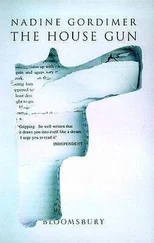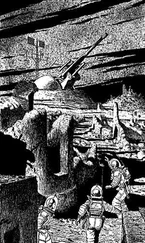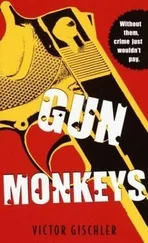The three servitors had, without the hexarch’s authorization, contrived a way to listen in on the very large number that the terminal had transmitted to the figure’s augment. (Strictly speaking, the hexarch hadn’t forbidden it.) At least scan verified that the figure did, in fact, possess an augment, or everyone would have been doomed.
Hemiola knew the principle of the calendrical lock, which the hexarch had explained to Jedao in distressingly small words.
“Look,” the hexarch had said during that first voyage to Tefos, “why don’t you take a break from playing solitaire so I can tell you about this.”
That time, the hexarch was a young man with middling dark skin and dark curls, his broad chest tapering to a slender waist. Although he affected a simple Nirai uniform, black with silver buttons, an ocean’s bounty of black pearls dripped from his ears, his wrists, his ankles.
Jedao looked up from his card game. His body was even younger than the hexarch’s, slim and unscarred, with blond hair and green eyes declaring its foreign origins. When he wasn’t playing card games, he exercised, as if by sheer effort he could overcome his thorough clumsiness. Kujen had let slip that the body had originally belonged to a Hafn prisoner of war.
“Whatever you like,” Jedao said, his face inquiring.
“How good are you at prime factorization?” the hexarch said.
“How big are the numbers,” Jedao said with unmistakable wariness, “and am I allowed to use a calculator or not?”
“You shouldn’t need a calculator for this,” the hexarch said, “unless you’re much worse at multiplication tables than I think you are. Try factoring seventy-two, just for practice.”
Jedao tapped one of the cards, frowning. “If you insist, Nirai-zho. That’s nine times eight, which becomes three times three times eight, but then you have to deal with the eight, which is four times two, which becomes two times two times two, so... three times three times two times two times two?” His fingers twitched as he counted up all the prime factors.
“You’re never going to win any prizes for speed,” the hexarch said, “but at least you got there.”
Jedao leaned back and smiled a tilted smile at him. “I thought the point of this arrangement was that you did the math bits and I did the walloping bits. Two is prime despite being even, right?”
The hexarch made a long-suffering noise. “You’re fucking with me, right?”
Jedao’s expression remained innocent.
“Saying this in a mathematical context makes me cringe, but will you take my word that with very, very large numbers, it’s very, very difficult to factor them, even using a computer?”
“Isn’t that obvious?”
“Don’t try my patience,” the hexarch said. “I’m explaining this to you so you don’t try some foxbrained scheme to get in by yourself and blow the whole archive to particles. Once you try to enter the archive, you’ll set off a timer. You have twelve minutes to not only factor the very, very large number the system presents to your augment, but to use the factors to perform a ritual that will align the local calendar in a particular manner. When the calendrical lock detects the necessary alignments, it will disarm the self-destruct and let you in.”
“Let me guess,” Jedao said. “You’re the only one fast enough to do it.”
“That’s the gamble, yes.”
“Why the additional ritual?” Jedao said. “Why not just disarm the system once the correct prime factors are regurgitated to it?”
“To prevent someone from hacking the lock remotely,” the hexarch said patiently. “It takes a human presence to affect the local calendar, so it’s an additional precaution.”
Hemiola could have added another reason, if the hexarch had ever thought of it: to prevent enemy servitors from breaking in. The three of them tried to crack the prime factorization problem out of curiosity, but they wouldn’t have dreamed of disarming it for real. In any case, even Sieve hadn’t had any luck with its factorization algorithm. It couldn’t reliably carry out the task in the necessary minutes. Even if one of them had figured it out, the fact that servitors did not generate formation effects under the high calendar meant that a fast algorithm did them no good. They couldn’t affect the lock one way or another.
Jedao had gathered up his cards and began shuffling them. He almost dropped the deck twice. The hexarch observed this with a curious mixture of exasperation and pleasure. “Consider me warned,” Jedao said pleasantly.
Consider me warned . Surely Jedao wouldn’t be suicidal enough to attempt to breach the base after the hexarch himself had warned him? Because if the figure out there wasn’t the hexarch, Jedao was the next likely candidate. At least, Hemiola hoped that no one else knew about Tefos’s location, or what was the point of a secret base?
“This person’s thermal signature doesn’t indicate any anxiety,” Hemiola said. “Surely that’s a good sign?”
“Shut up,” Rhombus said, “I’m factoring.”
“Me too,” Sieve said. “Want to help?”
Hemiola suppressed a flicker. Instead, it wondered what the intruder was doing. Like most servitors, it could track visuals in multiple directions at once. Its attempt at further conversation dimmed when it returned its primary focus to the monitor.
The figure had brought out a complicated device, all loops and wires and semiprime circuits, with a small panel displaying an unfamiliar user interface. Unbothered by the countdown, the figure fiddled with some controls, then set the device down. The figure began a meditation in front of the ashhawk alcove.
“We should intervene,” Hemiola said, suddenly concerned. “Look at the calendrical gradient. It’s shifting away from high calendar norms, and not in a way that’s doing anything for the lock.”
“If you distract Kujen and he messes up,” Rhombus said, “we’ll all get killed even faster! In what universe is this a good idea?”
“I have to agree,” Sieve said.
Hemiola gave up on speaking to them and returned to unpuzzling what the figure was up to. If it was going to perish, it might as well learn something in its last— Don’t be morbid .
The figure was reciting chants in an older form of the high language, one that survived in ritual use. The hexarch had lapsed into it from time to time during his stays. The chant came from a litany for one of the festivals devoted to chocolates.
Four minutes left.
Even stranger than the choice of festival were the calibration readings in the chamber. Because of the figure’s observance—it hadn’t escaped Hemiola’s notice that it was timing all its recitations to the clock’s downward count—the local calendar was deviating even further, almost to heretical degrees.
And the change was propagating throughout the base. The grid flashed red with a belated alert, warning Hemiola of the calendrical rot.
Three minutes left.
For someone concerned about its impending death, Rhombus was arguing passionately with Sieve about—how had they gotten on the topic of landscaping anyway? Especially since they only ventured outside every century, during the hexarch’s visits?
The figure straightened and slammed a hand down on the terminal. Hemiola presumed it was answering the grid using its augment. Inputting large prime factors manually wouldn’t be practical, not with slow human fingers.
Two minutes left.
The device blinked. Hemiola longed to take it apart and find out what it did. Something to do with factorization or otherwise bypassing the lock, surely.
“Don’t scare me like that, Kujen,” Rhombus muttered in a frantic magenta.
“He’s not done yet,” Sieve reminded it.
Читать дальше












